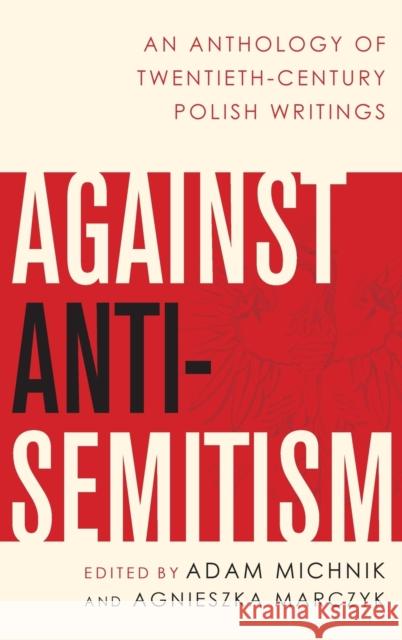Against Anti-Semitism: An Anthology of Twentieth-Century Polish Writings » książka
Against Anti-Semitism: An Anthology of Twentieth-Century Polish Writings
ISBN-13: 9780190624514 / Angielski / Twarda / 2017 / 424 str.
Author Leon Poliakov was once asked why he decided to write The History of Anti-Semitism. He replied, "I wanted to know why they were out to kill me." In our post-World War Two world, anti-Semitism remains a painful and deeply problematic subject. In particular, much has been written about Poland's alleged collaboration with the Nazis, with stories of Poles willingly handing over Polish Jews and often profiting from it in the process. Such assertions have led to a widespread and ongoing stereotype that Poles are a deeply, inherently anti-Semitic people. In fact, Adam Michnik and Agnieszka Marczyk argue, while there are certainly anti-Semites among Poles as anywhere, resistance to anti-Semitism is deeply rooted in the culture. The essays he has gathered in this unique and significant anthology--with contributions by some of Poland's most renowned writers and intellectuals across the decades--both testify to and elaborate on that premise.
Michnik and Marczyk trace the history of anti-Semitism opposition to it in Poland, methodically laying out and confronting the four most widespread myths that do continue to permeate Polish thought: that in the eastern territories occupied by the USSR between 1939 and 1941, many Jews collaborated with the occupying authorities; that Jews were only delivered into German hands by Polish criminals; that after 1945 Jews formed the core of the Department of Security and therefore bear the blame for the suffering of the Home Army soldiers in communist Poland; and finally, that anti-Semitism in Poland today is so marginal as to be almost exotic. A prologue by poet Czeslaw Milosz, winner of the Nobel Prize for Literature, analyzes the trends of the first third of the twentieth century-the period of crisis before the outbreak of World War II. The essays that follow, including works by, among other leading figures, Maria Dabrowska, Leszek Kolakowski, and Jan Blonski include writings from the years leading up to World War II, and draw from periodical and newspaper articles in addition to scholarly essays across the twentieth century. Provocative, sincere, and undeniably important, Against Anti-Semitism contextualizes Polish anti-Semitism and in the process reflects upon the full story of Poland's history and its role in the Holocaust and beyond.










